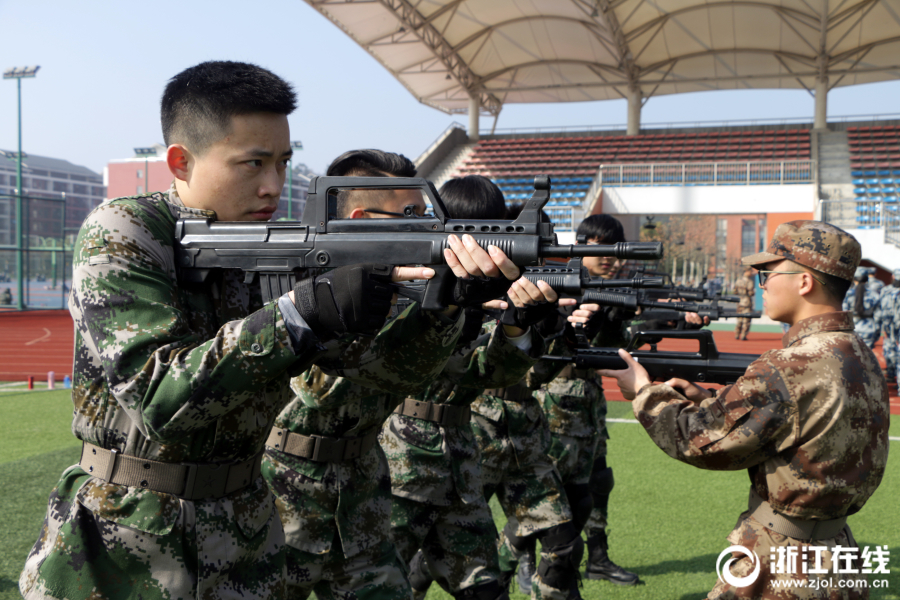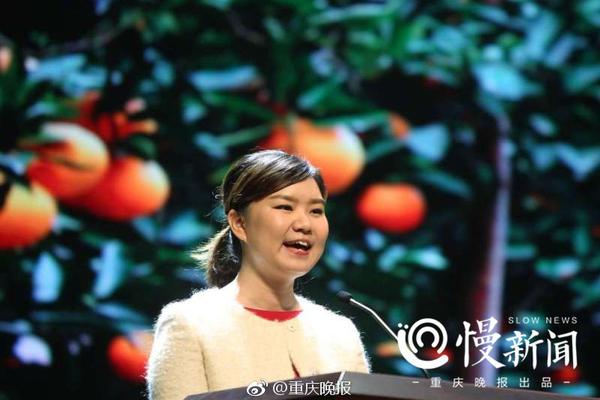
1. The five functions of the operating system are processor management, memory management, device management, file management and job management. Processor management The most basic function of processor management is to process interrupt events. After configuring the operating system, various events can be processed.
2. The main function of the computer operating system is process management, and its work is mainly process scheduling. In the case of a single user and a single taskNext, the processor is only monopolized by one user's task, and the process management work is very simple.
3. Operating System (abbreviation: OS) is a group of interrelated system software programs that supervise and control computer operation, use and run hardware, software resources and provide public services to organize user interaction.
4. Five major management functions of the operating system: (1) Job management: including tasks, interface management, human-computer interaction, graphical interface, voice control and virtual reality, etc. ( 2) File management: also known as information management. ( 3) Storage management: The essence is the management of storage "space", which mainly refers to the management of the main memory.
Any information system has five basic functions, namely: information collection and recording (input); information storage; information processing; information transmission; information output .
According to the functional introduction of the information system, the information system has five basic functions: input, storage, processing, output and control. Different functions have different functions, such as input function: the input function of the information system is determined by the purpose to be achieved by the system, the ability of the system and the permission of the information environment.
Five basic functions of the information system: input, storage, processing, output and control. Input function: The input function of the information system is determined by the purpose to be achieved by the system, the ability of the system and the permission of the information environment.Storage function: Storage function refers to the ability of the system to store various information and data. Mainly including: statistical functions.
The operating system has five functions: processor management: mainly controls and manages the work of the CPU. Storage management: mainly allocate and manage memory. Device management: mainly manage basic input and output devices. File management: responsible for the organization, storage, operation and protection of computer files.
The functions of the computer operating system include: processor management, memory management, device management, file management, job management and other functional modules. Processor management. The most basic function of processor management is to handle interrupt events. The processor can only detect interrupt events and generate interrupts and cannot process them.
The main function of the computer operating system is process management, and its main work is process scheduling. In the case of a single user and a single task, the processor is only monopolized by one user's task, and the work of process management is very simple.
The main functions of the operating system are process and processor management, job management, storage management, device management and file management, as follows: process and processor management. Because the execution of the program must rely on the processor, only one program flow can be processed and executed at any time. Homework management.
I) Processor management The most basic function of processor management is to handle interrupt events. The processor can only detect interrupt events and generate interrupts, and cannot handle these interrupt events. After configuring the operating system, all types of events can be handled.Another function of processor management is processor scheduling.
Five management functions of the operating system: job management: including tasks, interface management, human-computer interaction, graphical interface, voice control and virtual reality, etc. File management: also known as information management. Storage management: The essence is the management of storage "space", which mainly refers to the management of the main memory.

The storage management function of the operating system is to manage memory resources. It mainly realizes memory allocation and recovery, storage protection and memory expansion. The device management of the device management operating system is responsible for allocating and recycling external devices, and controlling external devices to operate according to the requirements of user programs.
The functions of the computer operating system include: processor management, memory management, device management, file management, job management and other functional modules. Processor management. The most basic function of processor management is to handle interrupt events. The processor can only detect interrupt events and generate interrupts and cannot process them.
The five functions of the operating system are processor management, memory management, device management, file management and job management.Processor management The most basic function of processor management is to process interrupt events. After configuring the operating system, various events can be processed.
European Cup live-APP, download it now, new users will receive a novice gift pack.
1. The five functions of the operating system are processor management, memory management, device management, file management and job management. Processor management The most basic function of processor management is to process interrupt events. After configuring the operating system, various events can be processed.
2. The main function of the computer operating system is process management, and its work is mainly process scheduling. In the case of a single user and a single taskNext, the processor is only monopolized by one user's task, and the process management work is very simple.
3. Operating System (abbreviation: OS) is a group of interrelated system software programs that supervise and control computer operation, use and run hardware, software resources and provide public services to organize user interaction.
4. Five major management functions of the operating system: (1) Job management: including tasks, interface management, human-computer interaction, graphical interface, voice control and virtual reality, etc. ( 2) File management: also known as information management. ( 3) Storage management: The essence is the management of storage "space", which mainly refers to the management of the main memory.
Any information system has five basic functions, namely: information collection and recording (input); information storage; information processing; information transmission; information output .
According to the functional introduction of the information system, the information system has five basic functions: input, storage, processing, output and control. Different functions have different functions, such as input function: the input function of the information system is determined by the purpose to be achieved by the system, the ability of the system and the permission of the information environment.
Five basic functions of the information system: input, storage, processing, output and control. Input function: The input function of the information system is determined by the purpose to be achieved by the system, the ability of the system and the permission of the information environment.Storage function: Storage function refers to the ability of the system to store various information and data. Mainly including: statistical functions.
The operating system has five functions: processor management: mainly controls and manages the work of the CPU. Storage management: mainly allocate and manage memory. Device management: mainly manage basic input and output devices. File management: responsible for the organization, storage, operation and protection of computer files.
The functions of the computer operating system include: processor management, memory management, device management, file management, job management and other functional modules. Processor management. The most basic function of processor management is to handle interrupt events. The processor can only detect interrupt events and generate interrupts and cannot process them.
The main function of the computer operating system is process management, and its main work is process scheduling. In the case of a single user and a single task, the processor is only monopolized by one user's task, and the work of process management is very simple.
The main functions of the operating system are process and processor management, job management, storage management, device management and file management, as follows: process and processor management. Because the execution of the program must rely on the processor, only one program flow can be processed and executed at any time. Homework management.
I) Processor management The most basic function of processor management is to handle interrupt events. The processor can only detect interrupt events and generate interrupts, and cannot handle these interrupt events. After configuring the operating system, all types of events can be handled.Another function of processor management is processor scheduling.
Five management functions of the operating system: job management: including tasks, interface management, human-computer interaction, graphical interface, voice control and virtual reality, etc. File management: also known as information management. Storage management: The essence is the management of storage "space", which mainly refers to the management of the main memory.

The storage management function of the operating system is to manage memory resources. It mainly realizes memory allocation and recovery, storage protection and memory expansion. The device management of the device management operating system is responsible for allocating and recycling external devices, and controlling external devices to operate according to the requirements of user programs.
The functions of the computer operating system include: processor management, memory management, device management, file management, job management and other functional modules. Processor management. The most basic function of processor management is to handle interrupt events. The processor can only detect interrupt events and generate interrupts and cannot process them.
The five functions of the operating system are processor management, memory management, device management, file management and job management.Processor management The most basic function of processor management is to process interrupt events. After configuring the operating system, various events can be processed.
100 free bonus casino no deposit GCash
author: 2025-01-10 17:27Free sports events uefa champions league app android
author: 2025-01-10 15:58bingo plus update today Philippines
author: 2025-01-10 17:27Hearthstone Arena class tier list 2024
author: 2025-01-10 15:30 UEFA European championship
UEFA European championship
361.59MB
Check Hearthstone Arena win rate
Hearthstone Arena win rate
651.19MB
Check UEFA Champions League live streaming app
UEFA Champions League live streaming app
926.19MB
Check UEFA European championship
UEFA European championship
551.93MB
Check DigiPlus fair value
DigiPlus fair value
546.76MB
Check UEFA Champions League live
UEFA Champions League live
675.37MB
Check PAGCOR online casino free 100
PAGCOR online casino free 100
536.32MB
Check Casino Plus
Casino Plus
853.49MB
Check Hearthstone Arena Tier List
Hearthstone Arena Tier List
773.99MB
Check App to watch Champions League live free
App to watch Champions League live free
114.67MB
Check European Cup live
European Cup live
889.55MB
Check casino plus free 100
casino plus free 100
148.33MB
Check UEFA live free
UEFA live free
831.14MB
Check Free sports events uefa champions league app android
Free sports events uefa champions league app android
123.11MB
Check Hearthstone arena class win rates reddit
Hearthstone arena class win rates reddit
851.16MB
Check Hearthstone Arena win rate
Hearthstone Arena win rate
377.22MB
Check Hearthstone Arena win rate
Hearthstone Arena win rate
969.82MB
Check Europa League app
Europa League app
587.75MB
Check DigiPlus Philippine
DigiPlus Philippine
752.27MB
Check Europa League app
Europa League app
675.17MB
Check Casino Plus free 100
Casino Plus free 100
136.93MB
Check App to watch Champions League live free
App to watch Champions League live free
452.89MB
Check UEFA Champions League live streaming app
UEFA Champions League live streaming app
652.53MB
Check PAGCOR online casino free 100
PAGCOR online casino free 100
385.36MB
Check UEFA Champions League live
UEFA Champions League live
795.78MB
Check Free sports events uefa champions league app android
Free sports events uefa champions league app android
594.17MB
Check Casino Plus free 100
Casino Plus free 100
113.89MB
Check Hearthstone Arena Tier List
Hearthstone Arena Tier List
885.69MB
Check Hearthstone Wild Decks
Hearthstone Wild Decks
178.41MB
Check Casino Plus GCash login
Casino Plus GCash login
654.22MB
Check casino plus free 100
casino plus free 100
319.23MB
Check UEFA Champions League live
UEFA Champions League live
437.53MB
Check Casino Plus app
Casino Plus app
332.43MB
Check Hearthstone arena deck Builder
Hearthstone arena deck Builder
828.44MB
Check 100 free bonus casino no deposit GCash
100 free bonus casino no deposit GCash
334.44MB
Check Casino Plus login register
Casino Plus login register
283.92MB
Check
Scan to install
European Cup live to discover more
Netizen comments More
1487 UEFA live free
2025-01-10 17:10 recommend
386 Casino Plus login register
2025-01-10 16:50 recommend
1996 UEFA Europa League
2025-01-10 16:20 recommend
878 UEFA Champions League live streaming app
2025-01-10 16:06 recommend
822 bingo plus update today
2025-01-10 15:53 recommend